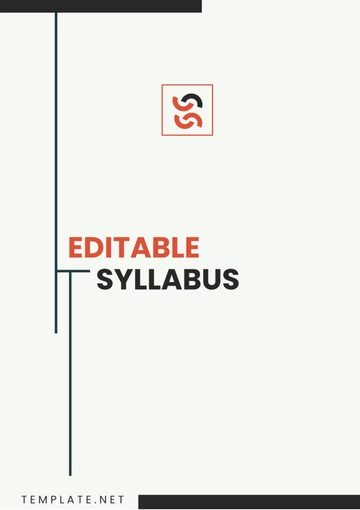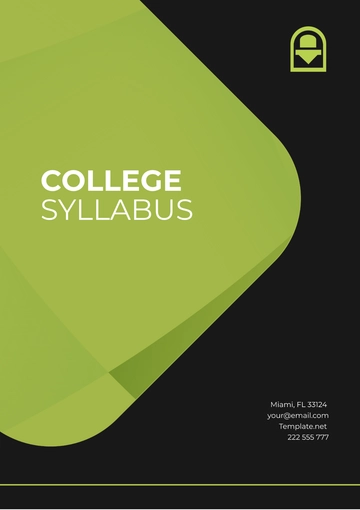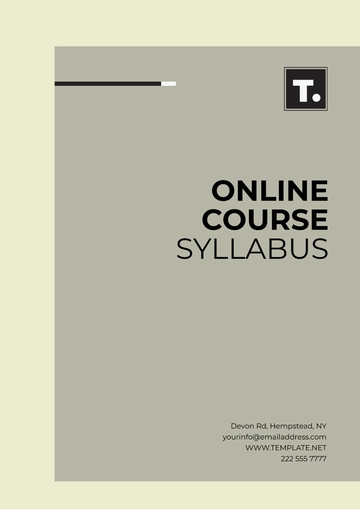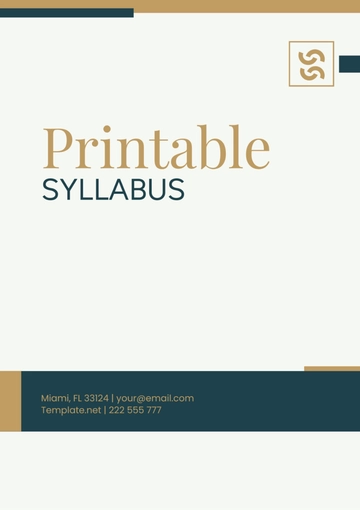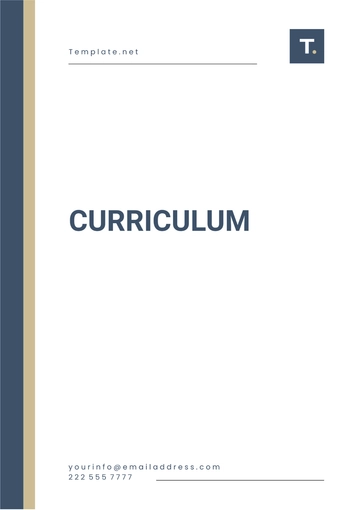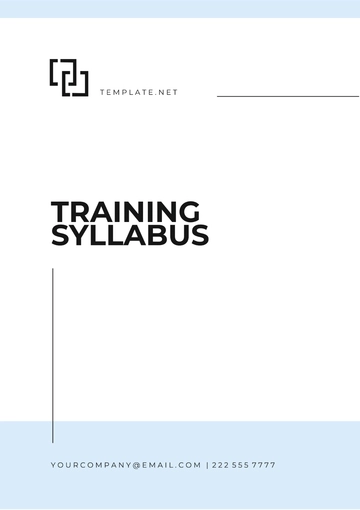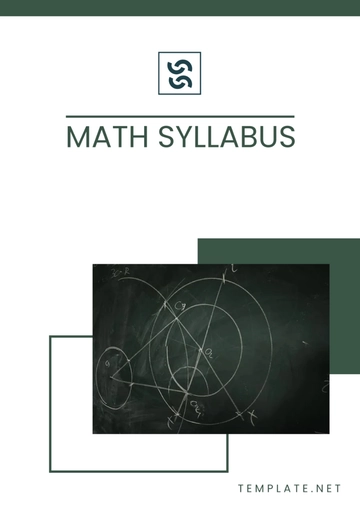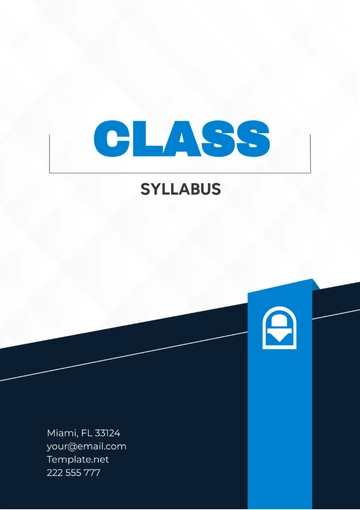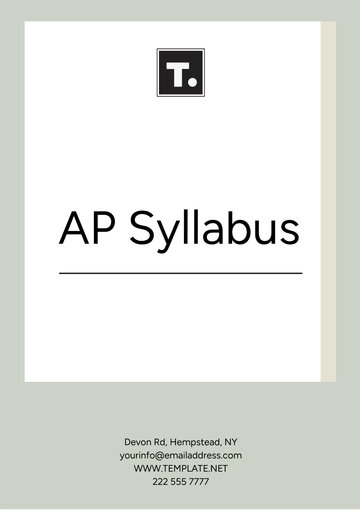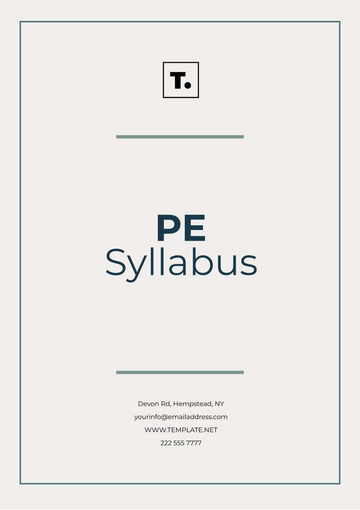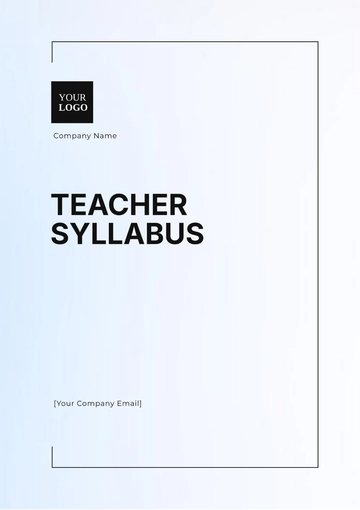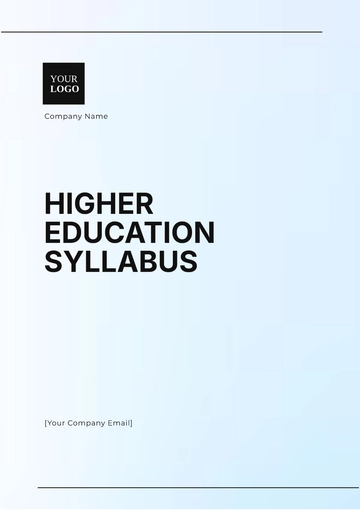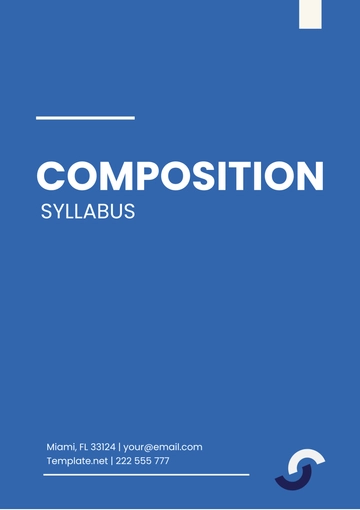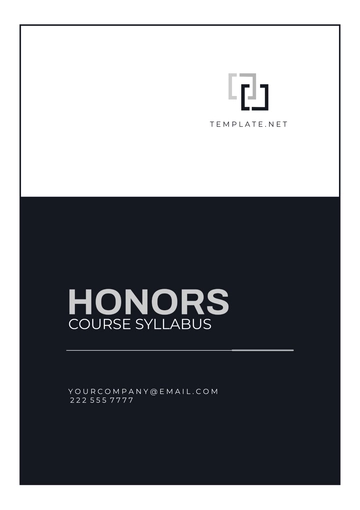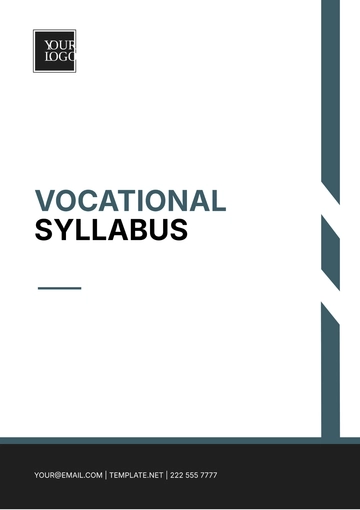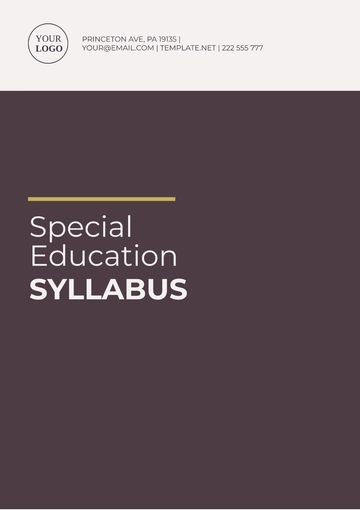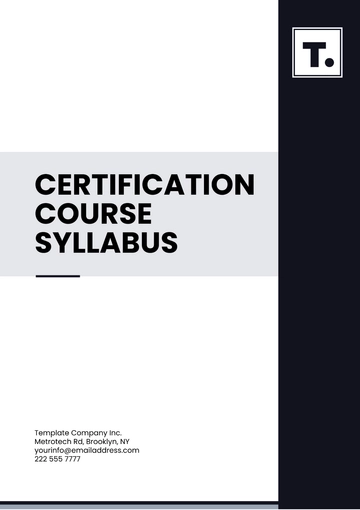English Literature Syllabus
English Literature Course
Course Code | [COURSE CODE] |
Instructor Name | [YOUR NAME] |
Email | [YOUR EMAIL] |
Office Hours | [OFFICE HOURS] |
Class Location | [CLASS LOCATION] |
Class Time | [CLASS TIME] |
Class Duration | [DATE] - [DATE] |
1. Course Description
This course will serve as an introduction to the vast and complex world of William Shakespeare, one of the most acclaimed playwrights in history. We will be analyzing several of Shakespeare's works in depth, from his romantic comedies to his historical tragedies. Students will gain a deeper understanding of Shakespeare's influence on English literature and his development as a writer.
2. Instructor Information
Instructor: [YOUR NAME]
Contact Info: [YOUR EMAIL]
Organization: [YOUR COMPANY NAME]
3. Learning Objectives
Develop an understanding of Shakespeare’s plays and the historical context in which they were produced
Analyze the dramatic structure and poetic devices used in Shakespeare’s work
Examine themes, characters, and motifs within Shakespeare’s writing
Discuss the ways in which Shakespeare’s works influence contemporary literature and culture
Improve critical reading and writing skills through analyzing Shakespearean texts
4. Course Schedule
Week | Topic | Required Reading |
|---|
1 | Introduction to Shakespeare’s Life and Works | "Shakespeare: The World as Stage" by Bill Bryson |
2-3 | Tragedies: Hamlet, Macbeth | "Hamlet" and "Macbeth" by William Shakespeare |
4-5 | Comedies: A Midsummer Night’s Dream, Much Ado About Nothing | "A Midsummer Night's Dream" and "Much Ado About Nothing" by William Shakespeare |
6-7 | Histories: Henry IV, Henry V | "Henry IV, Part 1" and "Henry V" by William Shakespeare |
8 | Sonnets: Exploration and Analysis | Selections from "Shakespeare's Sonnets" |
5. Required Reading and Materials
"Shakespeare: The World as Stage" by Bill Bryson
"Hamlet", "Macbeth", "A Midsummer Night's Dream" and "Much Ado About Nothing" by William Shakespeare
"The Riverside Shakespeare" edited by G. Blakemore Evans
"Shakespeare's Sonnets" by William Shakespeare
Access to a modern English translation for clarification
6. Assignments and Assessments
Weekly reading response journals reflecting understanding and interpretation of the material
Two papers analyzing a chosen theme or character across multiple plays
Midterm and final exams covering identification, comprehension, and analysis of readings
One group presentation comparing Shakespeare’s portrayal of a specific theme against a modern interpretation
Participation in class discussions and debates
7. Course Policy
All assignments and assessments are due at the beginning of class on the date specified.
Plagiarism will not be tolerated and will result in disciplinary action.
Late submissions will incur a loss of 10% per day overdue.
Consistent attendance is necessary. More than three unexcused absences will affect your final grade.
Respectful and thoughtful participation in all class discussions is expected.
8. Evaluation Methods
Response Papers (20%): Two short papers analyzing a specific play, theme, or character from the readings.
Group Project (30%): A group presentation analyzing a selected play, focusing on its historical context, themes, and relevance today.
Participation (10%): Active participation in class discussions and online forums.
Midterm Exam (20%): A written exam covering the first half of the course material.
Final Exam (20%): A comprehensive written exam covering the entire course.
9. Additional Resources
Library Reserve: A selection of Shakespeare’s plays and secondary sources are available on reserve at the university library.
Writing Center: Assistance with writing assignments is available through the university writing center.
10. Disclaimer
The syllabus for this course is not a fixed entity; it is flexible and is liable to change at any moment throughout the duration of the course. In the event of any such modifications, all participants will be notified in a timely manner. However, it is important to remember that the obligation to stay up-to-date with these alterations and adjustments falls on each individual student.
Syllabus Templates @ Template.net


